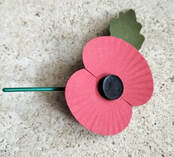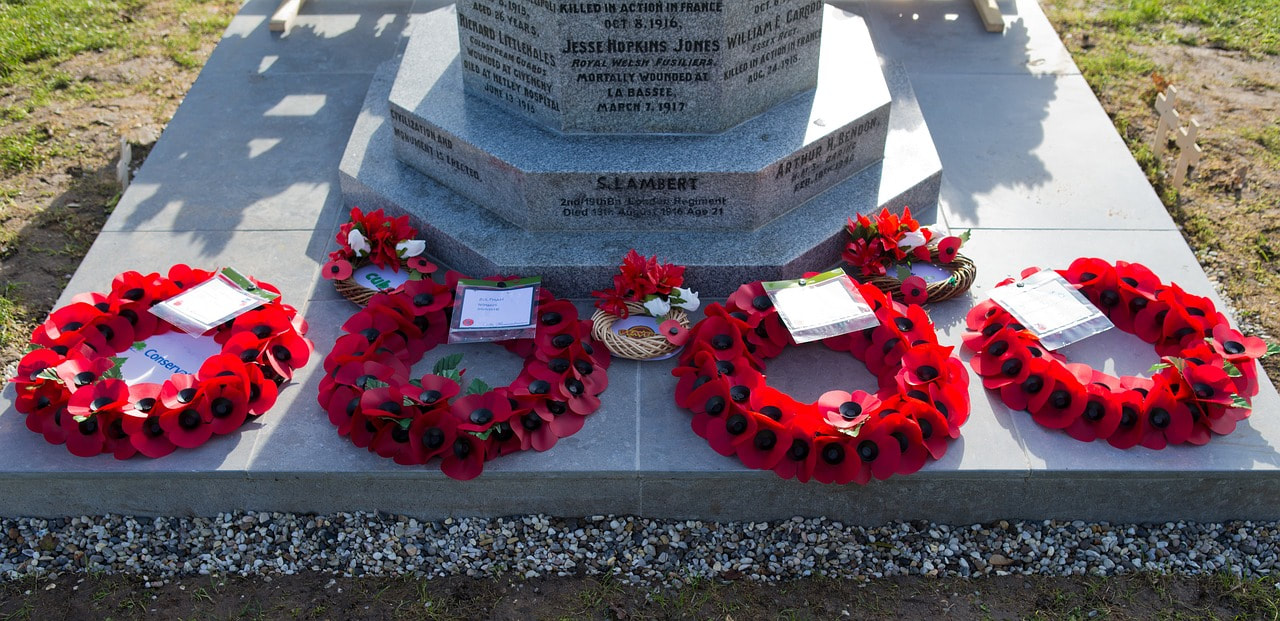|
In the United Kingdom, the vibrant red poppy flower holds a special significance in the commemoration of Remembrance Day. Observed annually on 11th November, this solemn day pays tribute to the brave men and women who sacrificed their lives in the line of duty during World War I as well as subsequent conflicts.
During World War 1, vast numbers of bombs fell on northern France and Flanders, leaving huge numbers of craters which devastated the countryside. But in the spring of 1915, poppies started to grow in the broken soil. A Canadian solider, Lieutenant Colonel John McCrae was struck by the sight of these vividly red flowers blooming amidst the graves of soldiers, and he wrote a poem called In Flanders Fields. In Flanders fields the poppies blow Between the crosses, row on row, … The poem resonated with many and the red poppy became a powerful emblem representing the bloodshed and sacrifice of those who served in the military. Two women in particular, were responsible for establishing the poppy as a means of raising much needed money to help war veterans of World War 1 and their families. The first was an American university professor called Moina Michael, who, in 1918, inspired by the poem, set out to sell silk poppy flowers to raise money on behalf of soldiers killed and injured in the war. In subsequent years, she got injured soldiers to make the poppies as a way to earn a living. She was affectionately called the “Poppy Lady”. Simultaneously, a Frenchwoman named Anna Guérin was also inspired by McCrae’s poem. She promoted the sale of artificial poppies in France, to raise funds for French soldiers who were medically discharged without a pension and to aid in the recovery of France after the war. She then started to sell her flowers in the USA and in 1921, she went to London and the idea quickly became adopted by the Royal British Legion, an organisation which supports war veterans and their families in the UK. Since 1921, the Poppy Appeal has become an integral part of Remembrance Day commemorations. Millions of artificial red paper poppies are sold across the UK in the streets and in shops, in the weeks leading up to November 11th. The money raised continues to contribute to the welfare and support of veterans and their families and people proudly wear the poppies as a visual pledge to honour those who have lost their lives in war. On Remembrance Day itself, ceremonies are held at war memorials, and military cemeteries all around the UK and large artificial poppy wreaths are left at the memorials as a visible symbol of respect and gratitude. During the ceremonies, individuals observe a two-minute silence at exactly 11 a.m., marking the moment when the armistice was agreed in 1918, officially ending World War I. Les commentaires sont fermés.
|
Philippa StaceyPhilippa Stacey a fondé Eureka en 2007. Elle vit et enseigne l’anglais aux professionnels en France depuis 1993. Archives
Novembre 2023
Catégories |





 Flux RSS
Flux RSS